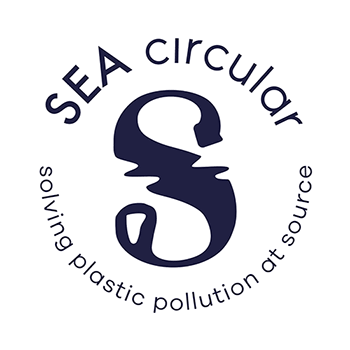
news

Regional dialogue on ‘Perceptions on plastic waste: A dialogue on the findings of a regional study and the role of businesses in accelerating circularity’
2023-01-10Regional dialogue on ‘Perceptions on plastic waste: A dialogue on the findings of a regional study and the role of businesses in accelerating circularity’
Bangkok, 11 January 2023
Over 150 participants representing government agencies, businesses, start-ups and entrepreneur communities from 20+ countries joined the regional dialogue on ‘Perceptions on plastic waste: A dialogue on the findings of a regional study and the role of businesses in accelerating circularity’ on November 11, 2022.
The United Nations Environment Programme’s SEA circular project in collaboration with the Asian Institute of Technology (AIT) Extension organised this event as part of a Regional Dialogue Series by SEA circular. The dialogue was set out to broadly discuss and share key findings from a regional research study on Perceptions on plastic waste among businesses and consumers in the region, backed by engaging panel dialogue among key industry stakeholders.
The event started with the opening remarks by Dr. Vincent Aloysius. He emphasized the importance of consumer perception and participation when developing strategies for new business models to enhance plastic value chain.
He briefly shared how the current study is a follow-up to the original one that was facilitated in 2020; and how the new research incorporated key questions around the impact of the pandemic and emphasized the need to understand change in perception over the 2-year period.
During the keynote speech, Mr. Matt Kovac, CEO of Food Industry Asia (FIA), highlighted key findings on how businesses and customers felt about plastic waste to raise awareness of the problem in the region. He discussed how the production of plastic waste has changed since 2020 when the pandemic affected SMEs’ operations and raised concerns about the global supply chain while new technological advancements, regional initiatives, and new regulations have been implemented for the plastic value chain and circularity.
The research recommended priority actions as follows:
- The need for businesses to step up their recycling and R&D efforts as well as join multi-stakeholder coalition groups;
- Consumer education on sustainable packaging and recycling practices;
- Government mandates for consumer waste segregation; and
- The development of sustainable packaging labels by businesses.
During Part II of the programme, an engaging panel was moderated by Dr. Orathai Pongrakthum, Sustainability Project and Communication Manager, Dow Thailand. The panelists included:
- Ms. Kirsten van Zandvijk, Director of Sustainability & Partnerships for ASEAN & South Pacific, Coca-Cola Company;
- Mr. Aaron Lao, President, Philippines Plastic Association;
- Ms. Ann Claire C. Cabochan, Assistant Secretary for Consumer Protection Group, Philippine Department of Trade and Industry; and
- Mr. Nattapak Atichartakarn, CEO & Co-Founder, Trash Lucky, took part in this panel discussion.
Through this diverse set of panelists representing private sector, consumer community, a start-up SME with circularity oriented intervention and a plastic industry association, the discussion was driven towards their perspectives on the results of the perception study, gathering insights on initiatives from their organizations and thoughts on the future plans and direction to reduce plastic pollution in the region.
All the panelists acknowledged the key findings from the study – especially the need for strong policies to promote recycling, effective and consistent communication among consumers to better contribute to a circular economy and the role of private sector in supporting sustainable packaging, promoting consumer awareness and leading the way in facilitating policy change.
The discussion among the panelists led to the following key takeaways:
- Large corporations should concentrate on continuing to invest in developing the proper infrastructure and sharing industry-wide lessons with the authorities and other business sectors, to help develop the proper ecosystem for collection and recycling;
- The research findings would be beneficial for future efforts to building a circular economy – in terms of key drivers. Governments should be encouraged to develop waste infrastructure systems that would facilitate adoption of a circular economy and make recycling easier to practice;
- Research study offered helpful information on how to bridge existing gaps of the difficulties associated with the lack of sustainable products that people could afford and the lack of a suitable consumer education system to handle these products;
- Research findings of Perceptions on Plastic are extremely relevant to activities and practices at country level in the region. It has confirmed that the governments have to play a significant role in raising public awareness among consumers on practices related to responsible consumption and production for better management of plastic waste;
- Likewise, the large corporations use recycled materials in their products can enhance learning and motivate SMEs to begin to follow market trends;
- Encouraging SMEs and scaling up of their solutions can be improved by the support of financial mechanisms and uptake of the solutions through collaboration with big businesses. This can further encourage private sector led efforts. Meanwhile, policy makers can further support appropriate policies and incentives to enable the adoption of extended producer responsibility.
Please keep an eye on our event page to know more about our upcoming events.
Readers are invited to watch the webinar recording here.
About SEA circular project
The SEA circular project – Reducing marine litter by addressing the management of the plastic value chain in Southeast Asia is implemented by the UNEP Regional Office for Asia and the Pacific and the Coordinating Body on the Seas of East Asia (COBSEA), with funding support from the Government of Sweden. SEA circular aims to reduce and prevent plastic pollution and its impact by working with governments, businesses, civil society, academia, and international partners. The initiative promotes market-based solutions and enabling policies to transform plastic value-chain management, strengthens the science base for informed decision making, creates outreach and awareness. The project leverages COBSEA’s regional mechanism to tackle the transboundary challenge of marine litter in a harmonized manner.
news




